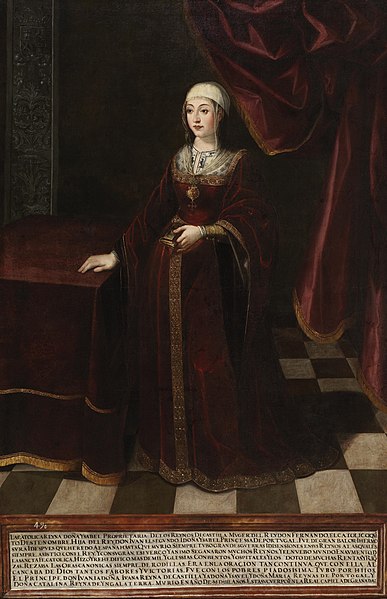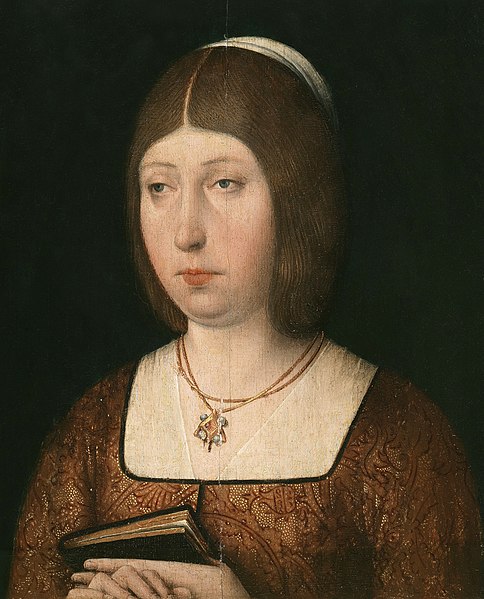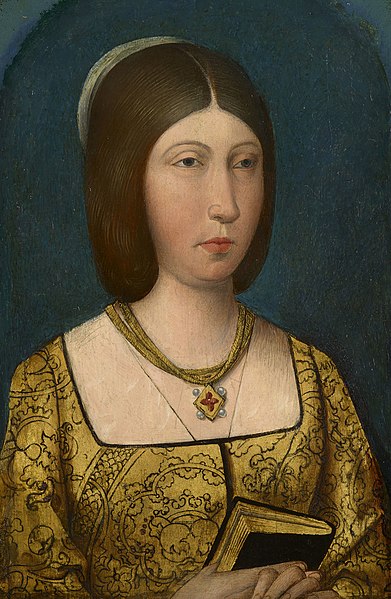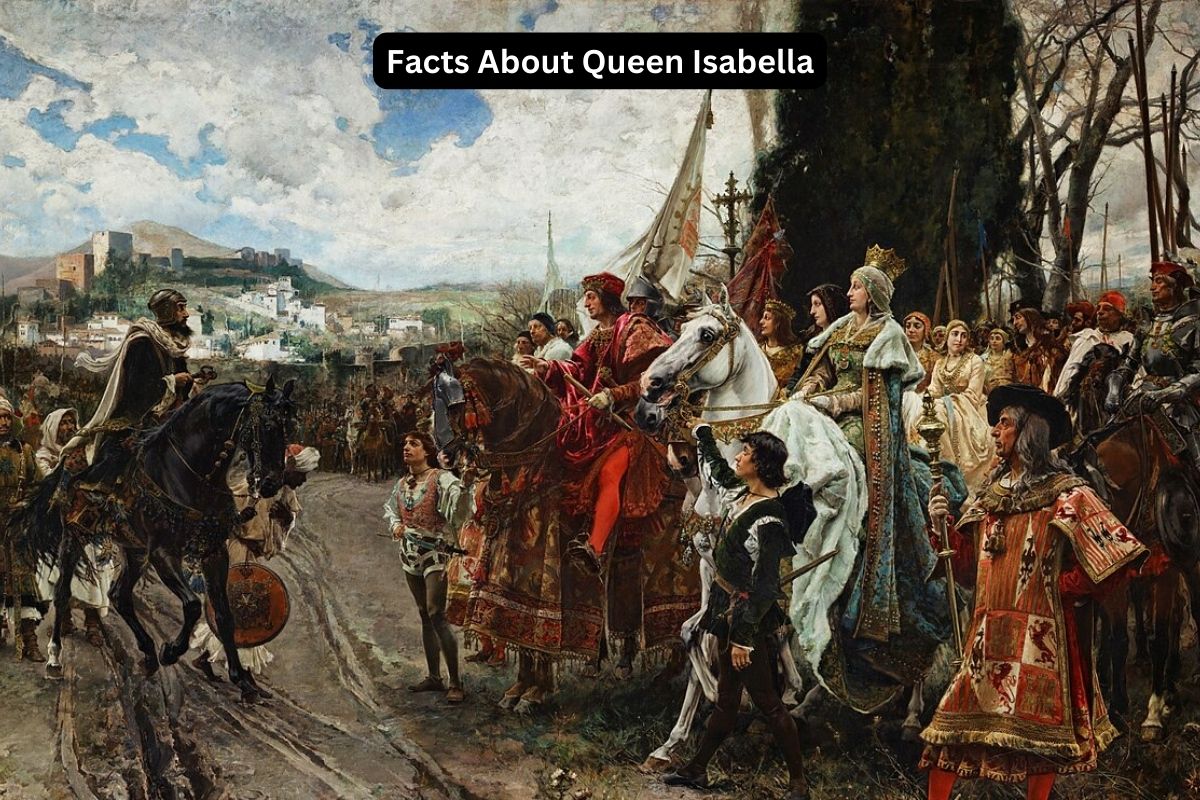In the annals of Spanish history, few figures loom as large as Queen Isabella I of Castile. Born into a tumultuous era of dynastic strife, Isabella rose to prominence to become one of the most influential monarchs in Europe during the late 15th century.
Her reign, marked by exploration, conquest, and religious fervor, left an indelible mark on Spain and the world at large. From sponsoring Christopher Columbus’s voyage to the Americas to overseeing the completion of the Reconquista, Isabella’s legacy is as complex as it is enduring.
However, her reign was also marred by controversy, particularly surrounding the establishment of the Spanish Inquisition.
This article delves into the life and reign of Queen Isabella I, exploring her achievements, her impact on Spanish history and culture, and the controversies that continue to shape perceptions of her legacy.
Queen Isabella Facts
1. Born on April 22, 1451, in Spain
Queen Isabella I of Castile was born on April 22, 1451, in the town of Madrigal de las Altas Torres, located in the province of Ávila, Spain.
Also Read: Queen Isabella Accomplishments
She was the daughter of John II of Castile and Isabella of Portugal. Isabella grew up in a politically tumultuous environment, witnessing the struggles for power and the complex dynamics of the Spanish kingdoms.

2. Ruled as Queen of Castile and León from 1474 to 1504
Isabella ascended to the throne of Castile and León in 1474 following the death of her half-brother, King Henry IV. Her claim to the throne was contested, leading to a civil war known as the War of Succession.
Isabella emerged victorious, consolidating her power and becoming the undisputed queen. Her reign marked a significant period in Spanish history, characterized by exploration, conquest, and religious fervor.
3. Sponsored Christopher Columbus’s voyage in 1492
One of the most famous aspects of Isabella’s reign is her sponsorship of Christopher Columbus’s historic voyage to the Americas. In 1492, after years of lobbying Columbus, Isabella and her husband, King Ferdinand II of Aragon, agreed to finance his expedition.
Also Read: Spanish Civil War Facts
This decision had far-reaching consequences, leading to the European discovery of the New World and ultimately reshaping the course of world history.
Isabella’s support for Columbus showcased her willingness to embrace exploration and expand the influence of Spain on the global stage.
4. Captured Granada, completing the Reconquista in 1492
Queen Isabella I’s reign was marked by significant cultural and intellectual growth in Spain. She and her court were patrons of the arts, literature, and sciences. Isabella’s court attracted scholars, artists, and thinkers from across Europe, fostering a vibrant cultural exchange.
This period saw the flourishing of Spanish literature, with notable figures such as Garcilaso de la Vega and Juan de la Encina making significant contributions. Isabella’s support for the arts and sciences helped establish Spain as a center of learning and innovation during the Renaissance.

5. Established the Spanish Inquisition in 1478
In 1478, Queen Isabella and King Ferdinand II established the Spanish Inquisition, a tribunal aimed at enforcing religious orthodoxy and rooting out heresy.
The Spanish Inquisition primarily targeted Jews, Muslims, and conversos (Jewish and Muslim converts to Christianity) suspected of practicing their former religions in secret.
The Inquisition had far-reaching consequences, leading to the expulsion of Jews from Spain in 1492 and the persecution of religious minorities.
While Isabella saw the Inquisition as a means to safeguard Catholicism and unify her kingdom under one faith, its methods were often brutal and controversial, leaving a dark stain on her legacy.
6. Promoted Catholicism and supported the Catholic Church
Isabella was a devout Catholic, and she played a central role in promoting and strengthening Catholicism in Spain.
She supported the Catholic Church financially and politically, granting it privileges and lands. Isabella also sought papal approval for her policies, including the establishment of the Spanish Inquisition.
Her efforts to enforce religious unity and combat heresy were driven by a deep sense of religious fervor and a desire to purify Spain of perceived moral and spiritual threats. Isabella’s unwavering commitment to Catholicism shaped the religious landscape of Spain and left a lasting legacy on its culture and identity.

7. Married Ferdinand II of Aragon, uniting Spain
Queen Isabella I’s marriage to King Ferdinand II of Aragon in 1469 marked a significant political union in Spain. Their marriage united the kingdoms of Castile and Aragon, laying the foundation for the eventual unification of Spain.
Together, Isabella and Ferdinand worked to consolidate their power, centralize authority, and expand their influence. Their combined efforts strengthened the Spanish monarchy and paved the way for Spain’s emergence as a major European power.
8. Implemented reforms in finance, justice, and education
During her reign, Queen Isabella implemented numerous reforms aimed at centralizing and modernizing the Spanish state. She introduced administrative reforms to improve governance, standardized weights and measures, and established royal councils to advise the monarchy.
Isabella also reformed the legal system, promoting the use of Roman law and establishing a more efficient system of justice. These reforms helped to strengthen the authority of the crown and enhance royal control over the diverse regions of Spain.
9. Known for intelligence, determination, and political skill
Queen Isabella I was renowned for her intelligence, determination, and political acumen. She was a skilled ruler who navigated the complex political landscape of 15th-century Spain with shrewdness and diplomacy.
Isabella’s strong leadership and unwavering commitment to her goals earned her the respect and admiration of her subjects. Her reign left a lasting impact on Spanish history, shaping the course of the nation’s development and influencing its cultural and political trajectory for centuries to come.
10. Left a lasting impact on Spanish history and culture
Queen Isabella I’s legacy continues to reverberate in modern-day Spain. Despite controversies surrounding some of her policies, she is often celebrated as one of Spain’s most influential monarchs.
Her sponsorship of Christopher Columbus’s voyage, the completion of the Reconquista, and the establishment of the Spanish Inquisition are enduring symbols of her reign.
Isabella’s contributions to Spanish culture, governance, and identity have left an indelible mark on the nation’s history, ensuring her place as a pivotal figure in the annals of Spanish monarchy.
